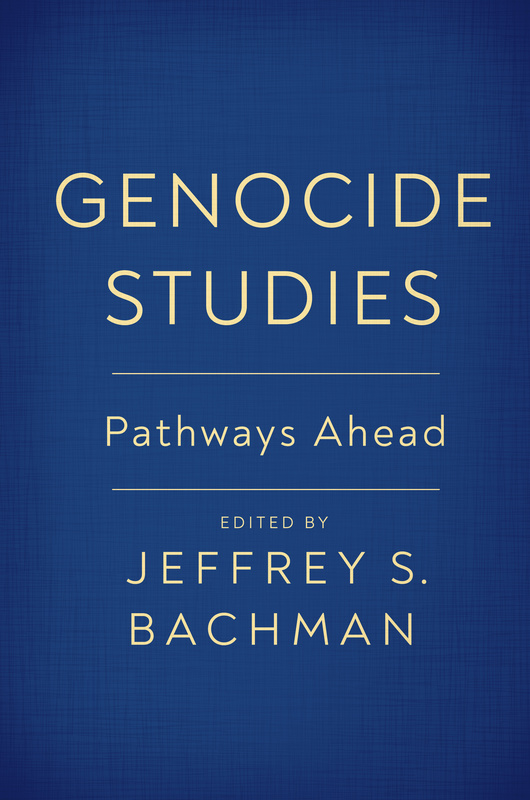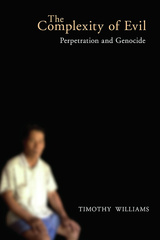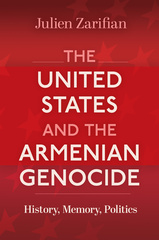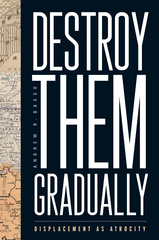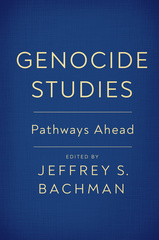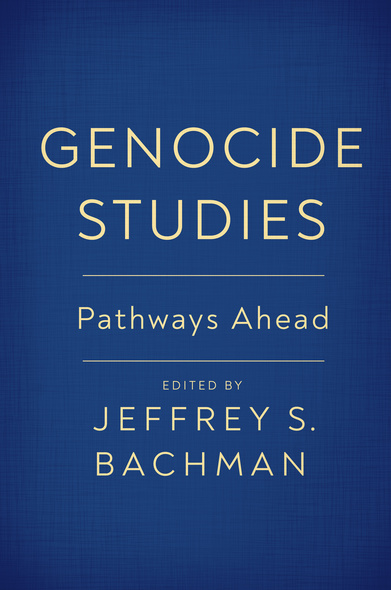
302 pages, 6 1/8 x 9 1/4
4 B-W images
Paperback
Release Date:11 Oct 2024
ISBN:9781978832329
In recent years, the world has been shaken by numerous events that have caused and continue to cause massive human suffering, from the COVID-19 pandemic to intrastate and interstate armed conflicts. Moreover, climate change continues to plow ahead, contributing to growing tensions, population movements, and resource scarcity. Meanwhile, the methods by which groups and group life are threatened, and the means by which violence is incited and perpetrated, continue to evolve. Such divergent crises, even when they overlap or intersect, confound definition and label. This book seeks not to answer the question "What is genocide?" but rather "What is genocide studies?" When Raphael Lemkin coined the term "genocide" in 1944, he could not have foreseen what the world would look like today. Now is the time to think about current manifestations of genocide and those likely to emerge in the future.
In this paradigm-shifting collection, Jeffrey Bachman assembles authors who are prepared to transcend the boundaries of conventional thinking about genocide. What the 'destruction of nations' means in the age of climate change, pandemics, machine-driven killing, and other challenges to the existence and flourishing of humans is radically rethought in Genocide Studies: Pathways Ahead.
‘Genocide Studies: Pathways Ahead reads like a truly cohesive, consistently excellent collection, a rarity for edited volumes. The range and the theoretical boldness of its chapters is laudable, as is its multi-disciplinary character. A Ph.D. student contributes an illuminating chapter on new, alternative forms of genocidal violence, while a renowned and prolific expert offers insights into the relation of COVID to genocide; yet another chapter confronts climate change mass violence—indeed, each chapter offers something bold and thought-provoking. Genocide Studies is exactly the sort of book that our rapidly expanding field needs about once a decade, in order to take stock and chart fresh directions.’
Horrifyingly, acts of mass violence may be proliferating in ways we don’t anticipate or fully understand. This interdisciplinary volume is timely and significant, engaging innovative approaches that inform and unsettle the evolving field of Genocide Studies to better analyze our complex times.'
'Genocide Studies: Pathways Ahead challenges us to reconsider the nature of violence and to reimagine the concept of genocide itself. By pushing scholars beyond traditional discussions of mass atrocity, the authors envision bold new directions for the future of genocide studies in a rapidly changing world.'
True to its title, Genocide Studies: Pathways Ahead maps out a vibrant and constantly expanding field, signposting new directions for those seeking a deeper understanding of genocide and interdisciplinary approaches to studying it. By illuminating underexplored avenues of research by some of the most exciting scholars working on these issues, this volume illustrates just how rich genocide studies has become…and how much more work there is to be done.
JEFFREY S. BACHMAN is an associate professor at American University's School of International Service. He is the author of The Politics of Genocide: From the Genocide Convention to the Responsibility to Protect (Rutgers University Press, 2022) and The United States and Genocide: (Re)Defining the Relationship and the editor of Cultural Genocide: Law, Politics, and Global Manifestations.
Introduction: Charting Pathways Ahead for Genocide Studies
JEFFREY S. BACHMAN
1 The Need for Education about the Holocaust and Genocide in the Twenty-First Century
SARA E. BROWN
Part I Evolving and Emerging Forms and Tools of Genocide
2 The New Prominence of Alternative Forms of Genocidal Violence
ESTHER BRITO
3 Genocide, “Destitucide,” and the COVID-19 Pandemic
ADAM JONES
4 Resource-Induced Mass Atrocity: Famine as Genocide in the Era of Climate Change
ELISABETH HOPE MURRAY
5 Genocide in the Digital Era
TIMOTHY WILLIAMS
Part II Agency, Human–Nonhuman Relations, Social Being, and Identity
6 Weapons, Agency, and Genocide
BENJAMIN MEICHES
7 “We Are Our Mountains”: Pathways toward a Post-anthropocentric Genocide Studies
ANDREW WOOLFORD AND WANDA JUNE
8 Ecocidio and Genocidas: Anthropological Reflections on Existence and Extermination in Latin America
EVA VAN ROEKEL
9 Reentry and Reintegration Following Genocide: Emerging Findings from Post-1994 Rwanda
HOLLIE NYSE TH NZI TAT IRA AND JAMIE D. WISE
Part III Genocide Studies and Permanent Security
10 Accounting for Permanent Security: The Light and Shadow of Transitional Justice
LAUREN MARIE BALASCO
11 Permanent Security: Unsettling Genocide Studies
JEFFREY S. BACHMAN
Notes on Contributors
Index
JEFFREY S. BACHMAN
1 The Need for Education about the Holocaust and Genocide in the Twenty-First Century
SARA E. BROWN
Part I Evolving and Emerging Forms and Tools of Genocide
2 The New Prominence of Alternative Forms of Genocidal Violence
ESTHER BRITO
3 Genocide, “Destitucide,” and the COVID-19 Pandemic
ADAM JONES
4 Resource-Induced Mass Atrocity: Famine as Genocide in the Era of Climate Change
ELISABETH HOPE MURRAY
5 Genocide in the Digital Era
TIMOTHY WILLIAMS
Part II Agency, Human–Nonhuman Relations, Social Being, and Identity
6 Weapons, Agency, and Genocide
BENJAMIN MEICHES
7 “We Are Our Mountains”: Pathways toward a Post-anthropocentric Genocide Studies
ANDREW WOOLFORD AND WANDA JUNE
8 Ecocidio and Genocidas: Anthropological Reflections on Existence and Extermination in Latin America
EVA VAN ROEKEL
9 Reentry and Reintegration Following Genocide: Emerging Findings from Post-1994 Rwanda
HOLLIE NYSE TH NZI TAT IRA AND JAMIE D. WISE
Part III Genocide Studies and Permanent Security
10 Accounting for Permanent Security: The Light and Shadow of Transitional Justice
LAUREN MARIE BALASCO
11 Permanent Security: Unsettling Genocide Studies
JEFFREY S. BACHMAN
Notes on Contributors
Index

